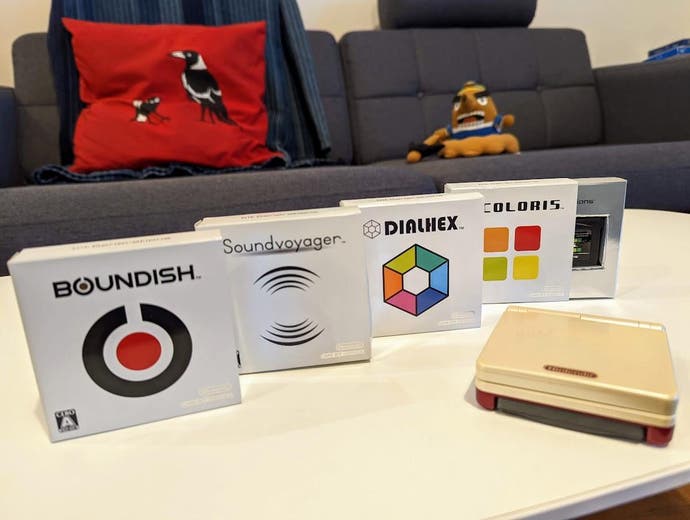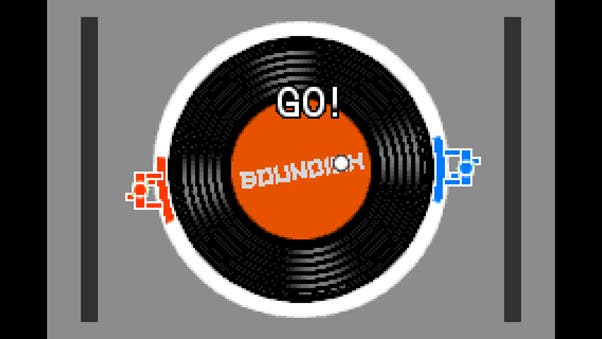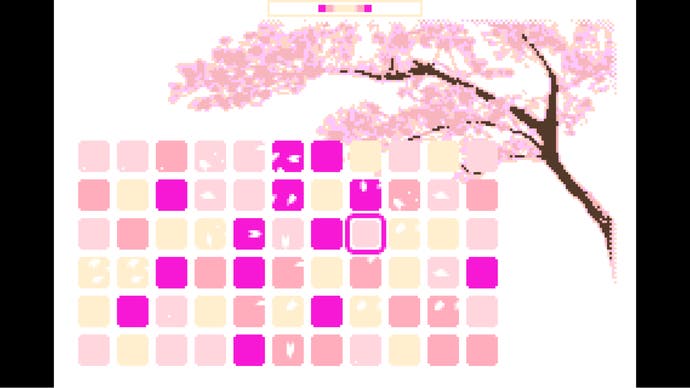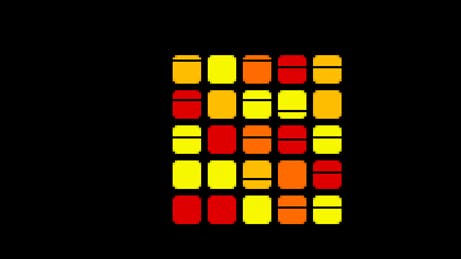Unearthing Bit Generations, Nintendo's long lost coffee table games.
Digitylish!
My childhood home is up for sale, so I spent the weekend excavating boyhood treasures and yeeting them into a skip. Most of them, I'm sorry to say, were junk. There were some pogs, a few faded soft toys, stacks of dog-eared Sonic the Comic back-issues, more than one funfax, but little held much beyond sentimental value. It was a sombre bit of personal archaeology, all told, but there was a silver lining. At the bottom of a box, glittering like diamonds, I found a stack of near-pristine Bit Generations games for Gameboy Advance. Four of the beauties! Dialhex, Boundish, Coloris and Soundvoyager.
If those aren't ringing bells, I don't blame you. Bit Generations was a Japan-only series of seven games, published by Nintendo way back in 2006. All but one was developed by Skip Ltd, of Chibi Robo fame. They were each little flights of fancy, announced under the name Digitylish, which I think is a portmanteau of 'digital' and 'stylish'. Though that name was swiftly dropped, it was apt. They just oozed style. The cartridges were matte black plastic with shiny metallic labels. By GBA standards, they felt expensive. The boxes were eggshell white, the logo emblazoned in the centre, with more than a hint of Bauhaus. And they were just slightly smaller than normal GBA boxes, and slightly more exact, wrought from precisely folded glossy cardstock. In short, they were coffee table games, made to sit pride of place in your modern living room. GBA games for the artbook crowd. Thirty-two-bit objet d'art.
And the market for this was... almost zero. A few resurfaced in the West as digital downloads for the Wii and DS. The rest never made it outside Japan.

The games themselves were mini experiments. Game-jam-type-things that are ten-a-penny these days on itch.io, but much rarer in the mid-noughties. And treated with almost absurd reverence. Soundvoyager was the boldest. It's meant to be played with your eyes shut, navigating with only stereo sound cues. Because the GBA SP didn't have a headphone jack, and my adapter is long lost, this one was a no-go for me, but Eurogamer's own Chris Donlan gave it a spin last year and shared his impressions.
Boundish is a five-in-one package with four variants on Pong, and a rogue juggling game thrown in for good measure. Each had an off-kilter all-caps title and a glitchy twist on the classic pong formula. POOL FLOWER is straight Pong but with translucent jelly blobs wandering the court. Hit them and they turn solid, complicating the play field and gumming up your opponent's movement. POWER SLIDER is pong on Venn-diagram rails, where both players take positions on one of two intersecting circles. BOX JUGGLING is a basic Game-&-Watch-like juggling minigame, but if a ball hits your head, you're briefly stunned. HUMAN LEAGUE, gives each player two parallel Pong-paddles, strung together like marionette foosball. It looks delightful and handles poorly.
The standout is WILD GO ROUND, where both players have 360 degree free movement around the edges of a vinyl record. When your paddle touches the ball, the record spins, matching your momentum, speeding up or slowing down the background music, and curving the ball's path in unpredictable arcs. The controls are a hot mess and it's almost impossible to guess where the ball will go next but, honestly, despite all that, it's a tiny triumph. These games are best played with two people, and are each quite basic. But they're made with love, ingenuity and the 32-bit soundtrack legitimately slaps.

By contrast Dialhex - later released as Rotohex on the Wii eshop - is less zany. It's a stately match-six puzzle game, played in a hexagonal grid. Coloured triangles fall from the top then slip down the smooth sides. You rotate them with a hexagonal cursor, like spinning the dial of a rotary telephone, trying to match a full hexagon. It starts slow, then ups the speed and adds colours, until the march of entropy creates such a jumble you're forced to scramble, thumb slipping off the D-pad, sweaty palms, completely out of kilter with the breezy hotel-lobby soundtrack. It's a lovely thing really, and the vibe is more than a bit Lumines. But it's also fiddly, and the decision to limit the colour palette to pastel shades of green and orange is baffling. On the muted GBA screen, they're unreadable.
Last, we have Coloris, another colour-match puzzler. Coloris plays like bejewelled. Only, here, instead of swapping pieces around, you change their colours. The colours are ordered on a gradient - from red to yellow, for example. The cursor swaps randomly between the two extremes. So, if the cursor is red, you can morph any block one shade closer to red, and if it's yellow it goes in the other direction. Match three and they evaporate. It sounds complex, but in practice it's intuitive. Early levels start simple, with only four tones. Later levels have distracting patterns, more tones and less distinct gradients. There are a few themed levels also, including a Sakura palette that grades from light pink to blushing purple, with dancing windblown petals.
Again, Coloris gets fiddly. The pacing is erratic, the LCD panel isn't contrasty enough to separate the various tones and, even if it were, the whole thing is a colourblind nightmare. But as before, it's got soul, and spark, and gorgeous sound design and, ultimately, the rough edges simply don't matter. Because these weren't full games. They were experiments. Wonderful, needless little follies, made for no one and bought by goodness knows whom. And I love them for it.

Nintendo haven't lost their taste for the experimental, of course, as Labo and Ring Fit well attest. But, in the age of the digital download, where Steam and Game Pass rule the roost, and PlayStation 5s are sold without disk drives, Bit Generations makes me keenly lament the slow obsolescence of nice game boxes. Brick and mortar stores limp on, and Limited Run Games are doing their level best to keep the art of the physical game alive, but these are made for hobbyists. Bit Generations, in a fit of new-millennium optimism, pitched Gameboy Advance games as executive office toys. Yuppie table ornaments. Tiny artsy concept pieces. Digitylish! It was apparent, even then, that this market barely existed. But these days it couldn't happen at all.
So, should you rush to eBay and buy up the last remaining Bit Generations games on import? At sixty pounds plus, they're insubstantial. Considered as games alone, I'm not even sure they're worth what I paid in 2006. Am I going to sell them, then? Not a chance. They're gorgeous little oddities. No! I'm going to put them on display, two on the bookshelf, one on the mantlepiece and Boundish on the coffee table. A talking point, as all coffee table items should be, with a gameboy alongside to play it.








